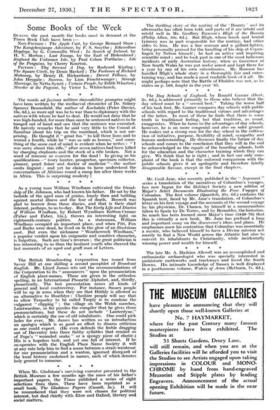The Day Schools of England, by Ronald Ginner (Dent, 35.
6d.), is addressed primarily to those who believe that the day school must be a second best." Taking the worse half of his task first, Mr. Gurner compares day schools with public schools with regard to the traditional virtues and advantages of the latter. In most of these lie finds that there is some truth in traditional feeling, but that tradition, as usual, exaggerates. When he turns to the advantages of day schools, however, he is on more congenial and also on safer ground. He makes out a strong case for the day school in the cultiva- tion of initiative, purpose, flexibility of mind, sympathy and human understanding. Ile discusses finally the future of day schools and comes to the conclusion that they will in the end be acknowledged as the equals of the boarding schools, both for the education and the character training which they can give. We think that he is right ; and in fact our only com- plaint of the book is that the enforced comparison with the public schools gives it an apologetic and therefore faintly disagreeable flavour, except in the final chapters.
* * * •


































 Previous page
Previous page